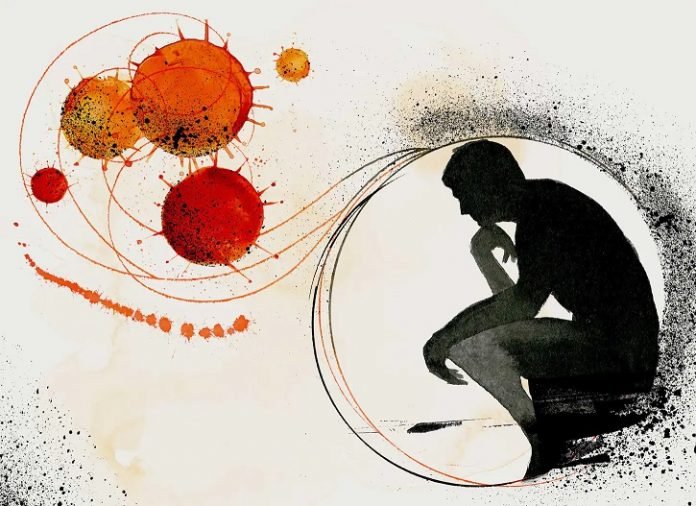An eye-opening study conducted by Wheaton College’s Dr. Tao Liu and Dr. Charles Liu has shed light on the adverse mental health impacts of coronavirus-related racism and hate crimes against the Asian American/Pacific Islanders (AAPI) community.
The numbers tell a grim story of COVID-19 and the rise of anti-Asian hate crimes.
At the height of the COVID-19 pandemic, members of the AAPI community faced some of the most atrocious hate crimes seen in America’s history. The numbers paint a grim picture: according to the Pew Research Center, roughly 40 percent of Asian American adults noted that others had been noticeably uncomfortable around them since the onset of COVID-19.
Hate crimes against the AAPI community experienced a nearly 150 percent increase in the nation’s 16 biggest cities in 2020, per Center for the Study of Hate and Extremism data. The STOP AAPI Hate reporting center recorded close to 3,800 hate crimes and COVID-19-related racism incidents between March 2020 and February 2021, most of which were captured by the New York Times. These hate incidents ranged from physical assault to harassment on social media platforms.
The latest tragedy occurred in Atlanta, Georgia, where eight Americans, including six women from the AAPI community, were shot dead across three spas on March 16, 2021, according to Time Magazine. Another happened in Washington, DC, when a man pushed and punched two AAPI persons at a metro station while screaming racial slurs at them, as reported by CNN.
The painful incidents in Atlanta and Washington, DC speak to a shameful legacy of anti-AAPI violence and hate crimes in the United States. Many of these incidents have been driven by a false, xenophobic narrative that Asian American and Pacific Islanders are responsible for the coronavirus pandemic. This underscores the long-standing view that AAPI members aren’t “real Americans.”
It’s crucial to understand the relationship between COVID-19-related racism and its mental health effects on AAPIs. Enter Dr. Liu & Dr. Liu’s study.
Getting to the bottom of the mental health effects of COVID-19-related racism on the AAPIs
Wheaton College Assistant Professors of Psychology Dr. Tao Liu and Dr. Charles Liu carried out a comprehensive study on the mental health impact of coronavirus pandemic-related racism and hate crimes on AAPIs. The study’s findings were published by Stop AAPI Hate, a nonprofit that focuses on hate crimes against Asian Americans and Pacific Islanders.
The two Wheaton’s assistant professors surveyed over 500 AAPIs for their study, ensuring an equal representation of ten different Asian ethnic groups, women and men, and various socioeconomic backgrounds, education levels, and age groups.
The researchers found that 62 percent of participants had directly faced active discrimination as of July 2020. Around 81 percent of respondents said they were aware of COVID-19-related racism against AAPIs based on incidents from media, acquaintances, or personal experience.
However you look at the data, it’s evident that COVID-19-related discrimination against AAPIs has been damaging. More specifically, the researchers found that AAPIs that experienced discrimination directly or secondhand were far more likely to struggle from an increase in depression (155%), anxiety (93%), stress (94%), and physical harm (78%).
In addition to experiencing heightened levels of discrimination-related stress, those from the AAPI community were already as likely to feel all the stressors other Americans were struggling with during the pandemic, including family responsibilities, social isolation, mental health-related issues among children, and job losses.
Dr. Tao Liu noted that, while the coronavirus origin narrative was primarily directed at Chinese individuals, their research discovered that Asian Americans and Asians of many different ethnic groups were also discriminated against, including Indians, Filipinos, Vietnamese, Korean, Japanese, and more. Dr. Charles Liu, who has been studying the psychological effects of racism for a long time, acknowledged that their research uncovered never-seen-before levels of mental health-related issues in the AAPI community.
Both researchers hope their findings will shed more light on the discrimination and hate crimes against AAPIs. More importantly, they expect the report will bring a greater understanding of the negative mental health outcomes for those experiencing racism-related discrimination. They also believe it will encourage professionals and providers to acknowledge the seriousness of mental health issues related to COVID-19 racism. Ultimately, they hope the report will galvanize mental health practitioners to become better trained and set aside more resources, so they can better help AAPIs experiencing heightened levels of anxiety, stress, and depression.
Despite the dire news, mental health services are stepping up to provide care to those experiencing trauma, like Geode Health in Wheaton, Illinois, which will be opening later this year.
Wrapping up…
The report from Dr. Charles Liu and Dr. Tao Liu clearly shows the adverse mental health effects of COVID-related racism and hate crimes against Asians and Asian Americans. We hope their findings help people who have AAPI family and friends feel better equipped to intervene when they witness discrimination in public.








